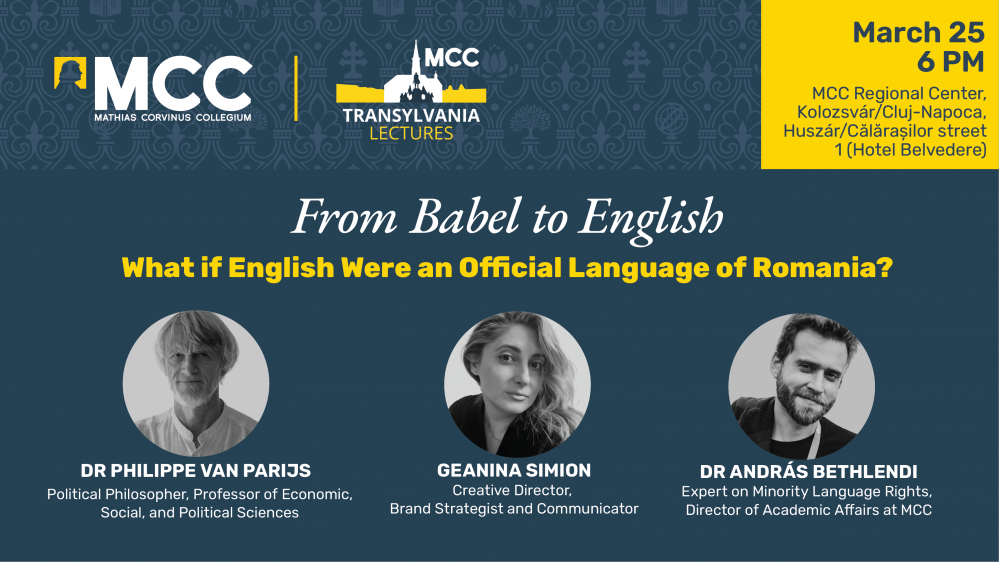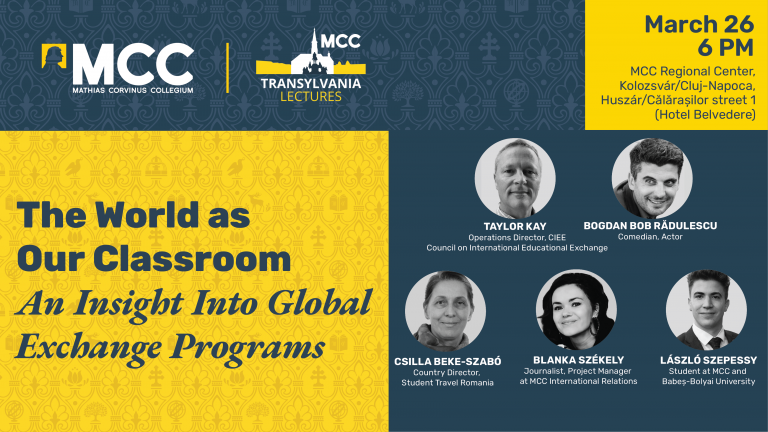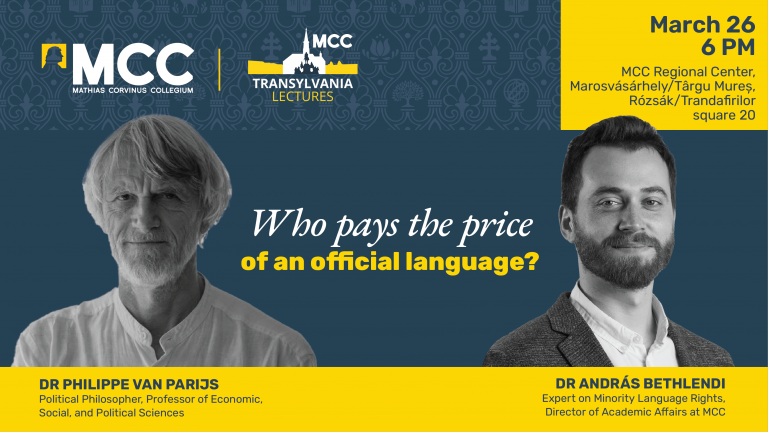Our next discussion from the Transylvania Lectures series invites you all to reflect on the broader implications of this question: How do we balance the practical benefits of a lingua franca with the richness of our linguistic heritage?
Across the globe, over 6,000 languages paint a picture of immense diversity within the limited borders of less than 200 countries. This richness in languages leads to complex questions about how nations manage their linguistic heritage. To add to this complexity, the rapid spread of English, reaching every corner of the world at an unmatched pace, sparks debates on fairness and cultural identity. While some see the global rise of English as a potential instrument and a positive force for unity, others worry about the injustices and cultural losses linguistic homogenization might bring.
Our guest is Philippe Van Parijs, one of the world’s most significant and comprehensive thinkers on linguistic justice. He stands at the forefront of this debate, offering a provocative perspective. He sees the adoption of English not as a threat, but as an opportunity to foster global justice. For Van Parijs, English is more than just a common way to communicate; it's a powerful tool to create equal opportunities globally. Yet, this approach doesn't overlook the significant challenges of embracing a single global language, such as an unjust advantage of native English speakers, the disintegration of communities connected by non-dominant languages, and so on.
Should Romania contemplate the potential elevation of English to an official language? As we ponder this question, we also wish to examine the balance between efficiency in communication and preserving a country’s linguistic and cultural diversity.
Participants:
- Dr Philippe Van Parijs studied philosophy, economics, law, sociology and linguistics at the Universities of Louvain, Oxford, Bielefeld and California (Berkeley). He holds doctorates in philosophy (Oxford) and the social sciences (Louvain). He is a guest professor at the Universities of Louvain and Leuven and a Robert Schuman Fellow at the European University Institute. He was the founding director of Louvain’s Hoover Chair of Economic and Social Ethics from 1991 to 2016, and a regular visiting professor at Harvard University from 2004 to 2008 and at the University of Oxford from 2011 to 2015. He is a member of Belgium’s Royal Academy of Sciences, a Fellow of the British Academy and doctor honoris causa of Laval University (Québec).
- Geanina Simion is a creative director, brand strategist and communicator, with 20 years of experience in the field. Having studied in marketing, communication and letters, in the last 10 years she approached the field of cultural marketing and cultural communication, representing institutions such as the Transylvania State Philharmonic Orchestra and the National Museum of Transylvanian History, and creating the communication and the image strategy for various other cultural projects. Currently, she is managing partner of Progressive Advertising agency and president of the "Niște Oameni" Association, an NGO that finances different projects for increasing the quality of life in the community.
- Dr András Bethlendi is an expert in minority language rights and the Director of Academic Activities at MCC, leader of the MCC’s Hungarian-language debate club, and a faculty member at Sapientia University. Between 2012-2016 he was the manager of the linguistic revitalization project "Igen, tessék!".
For more information follow our events on Facebook.


